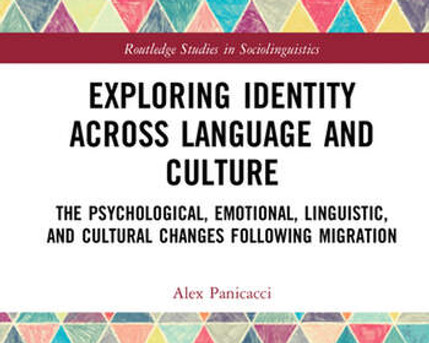Active Projects

MULTIDENTITIES: A DIVERSITY ATLAS OF THE PNW
2019
Create a cartography of the linguistic, cultural, and racial diversity of the of the area, pairing disaggregated data with personal stories, and ethnographic material. The goal is to assess the positive/negative impact of diversity on local communities to create a narrative about belonging and inclusion.

THE HIDDEN SIDE OF DIVERSITY: ADDRESSING LINGUISTIC BIAS
2022
Promote the incorporation of language in Diversity, Equity, and Inclusion agendas in order to structure righteous climate survey, trainings, and pedagogies.
The goal is to acknowledge and recognise language diversity and linguistic bias in different contexts.

DE-ESSENTIALIZING DEMOGRAPHIC CATEGORIES: RACE CATEGORIES OR RACIAL IDENTITIES?
2022
Review standard research practices to assess their accuracy and risks and test new methodologies to collect and report data about race and ethnicity. The goal is to establish enhanced research integrity guidelines when collecting and reporting data.
Past projects

IDENTITY ACROSS LANGUAGE AND CULTURE
2015-2020
This project unpacks the reciprocal influences between linguistic, cultural, and psychological factors in migrants' experience all at once. In particular, I examined the ways in which migrants’ linguistic and cultural practices interconnect with their personality and emotional attributes to inform language use, behavior, social integration, and perceptions of self-identity. The findings shed light on community dynamics, inspiring advanced approaches to analyze socio-psychological trends in the population.

MULTIPLE SELVES IN MULTIPLE LANGUAGES
2012-2019
Experienced by the majority (60-70%) of the migrants examined in my studies, the feeling of having different personalities in each linguistic dimension emerges as a leitmotif in migrants' narratives and many literary works (e.g., Hoffman, 1987; Lahiri, 2015). This popular phenomenon, investigated in this project, can be portrayed as a source of alienation or excitement, amplifies when emotions are involved, and does not seem to be related to language proficiency as it affects first language speakers as much as foreign language users. Contextual factors, such as topics or interlocutors seemed to have a role a role to play in this, as well as personality traits.

A CONSTELLATION OF SELVES IN ACCULTURATIVE PROCESSES
2015-2019
In the context of migration, the cognitive and emotional attachment to a language reinforces immigrants’ sense of belonging to the relevant community, be it the heritage or receiving one. The use of the local language in emotional conversations or for cognitive operations, paired with certain personality aspects (i.e., being empathic), increases immigrants’ psychological integration into the receiving society even more than the overall length of stay in the host country. In addition, different traits of one’s personality favour either the retention or the assimilation of different behavioral tendencies, explaining why the emergence of new forms of belonging does not disengage people from pre-existing values and communities.

